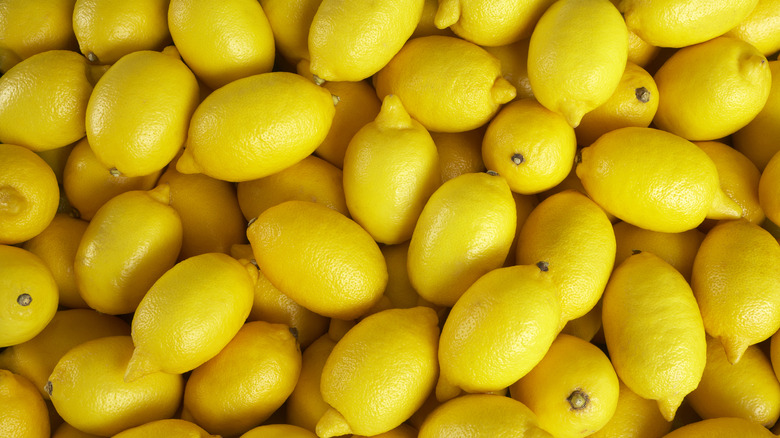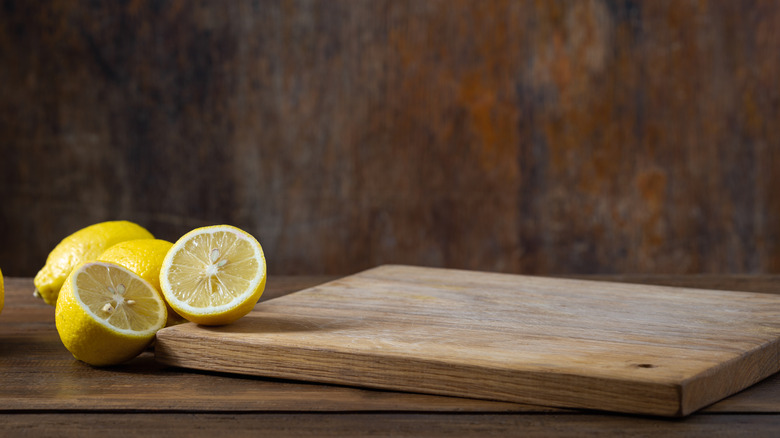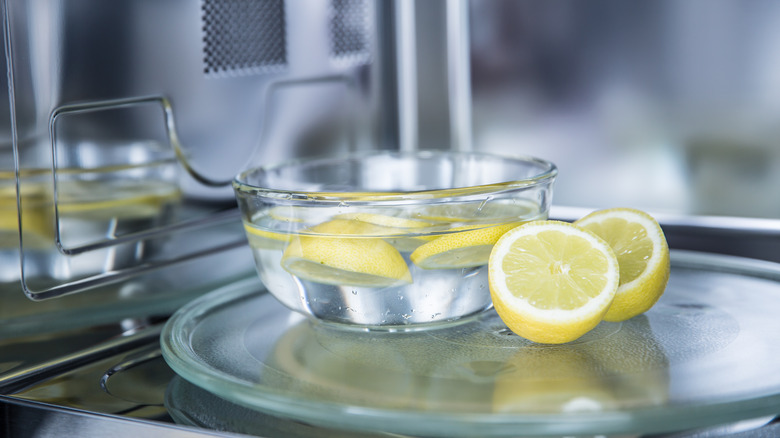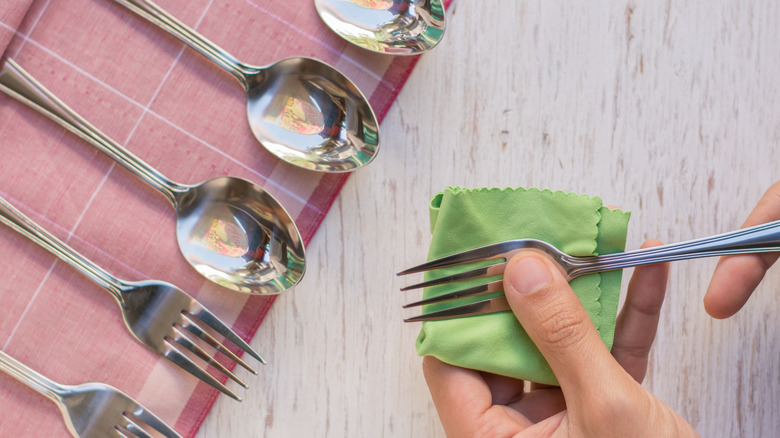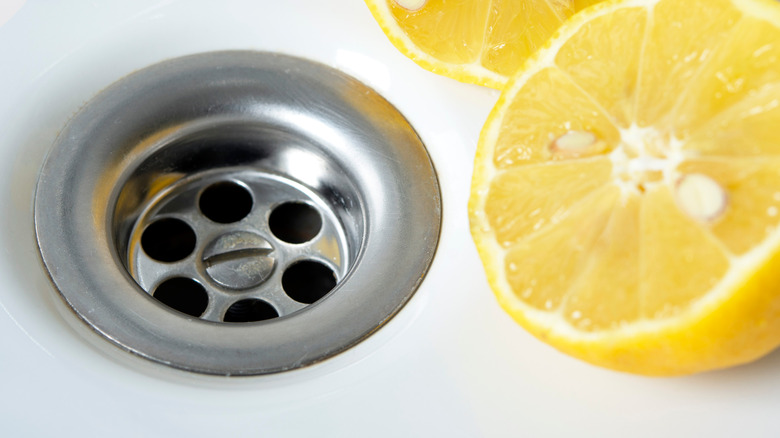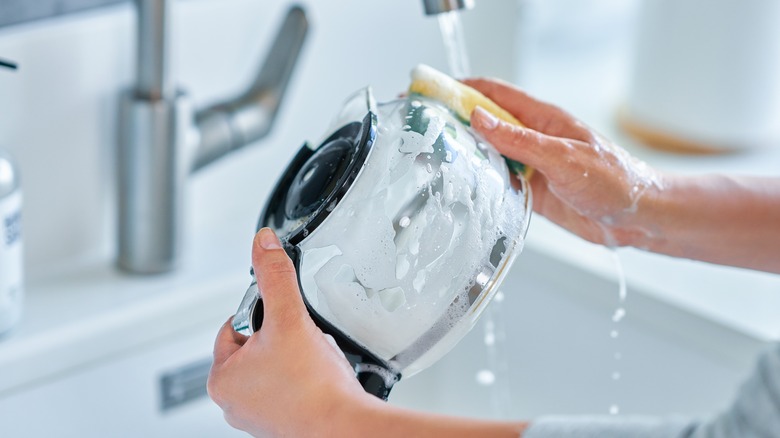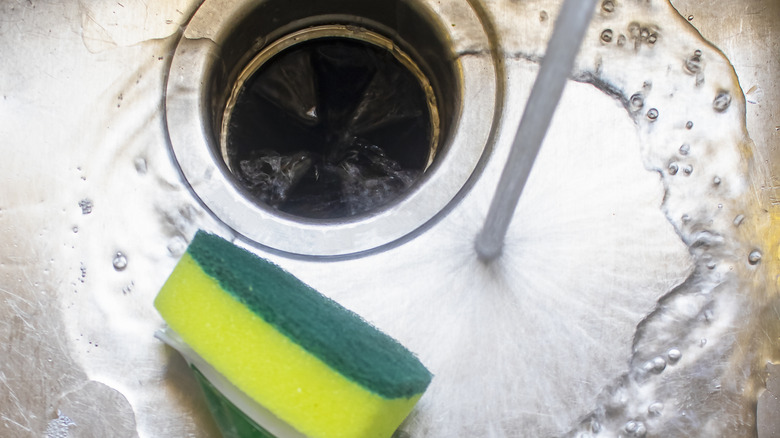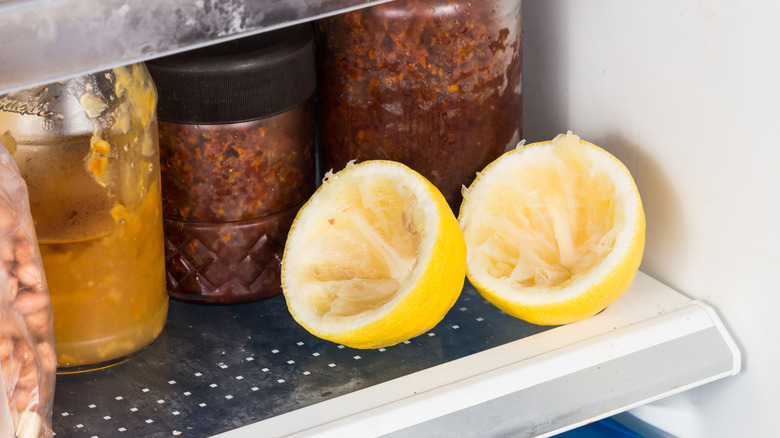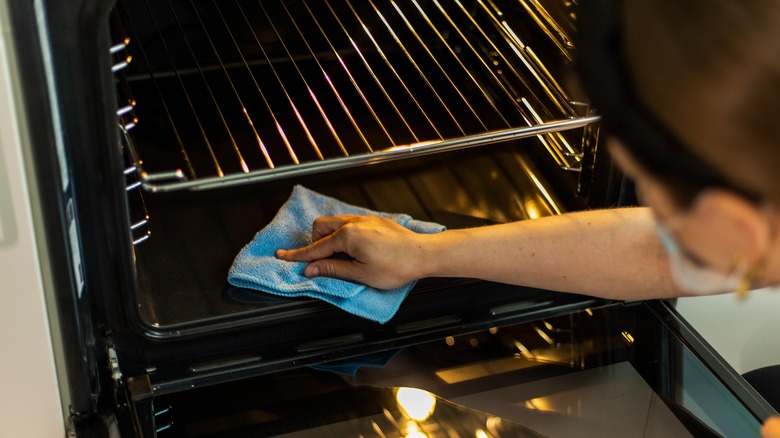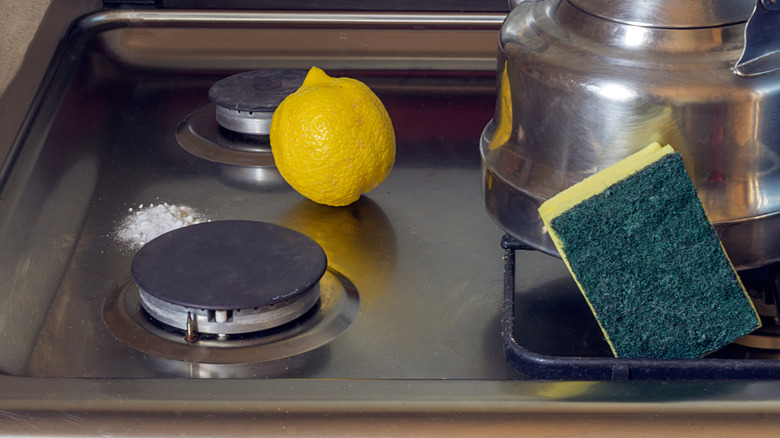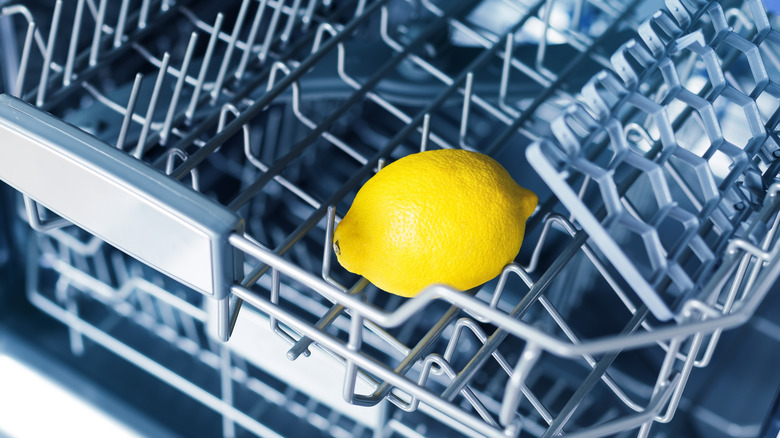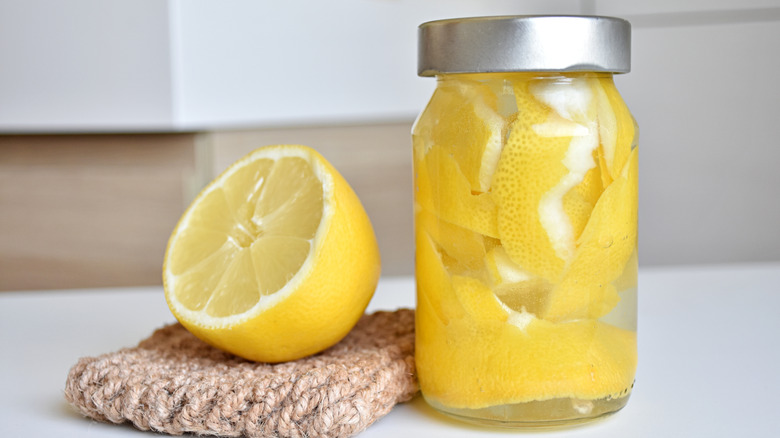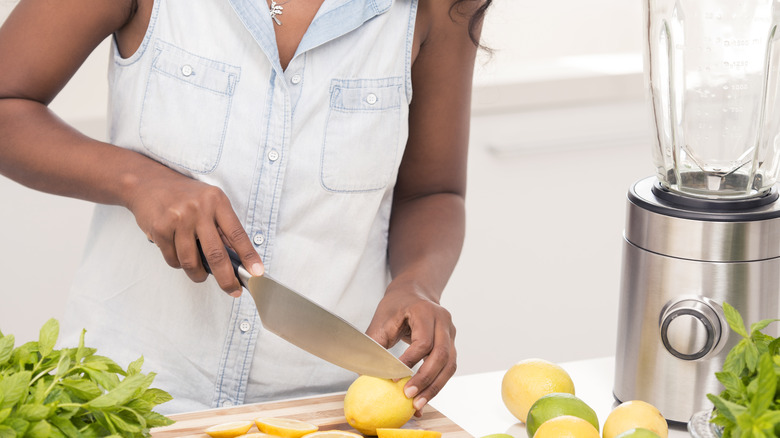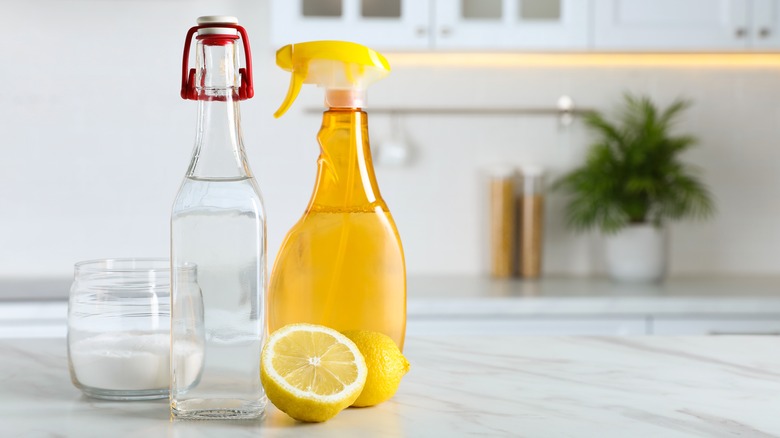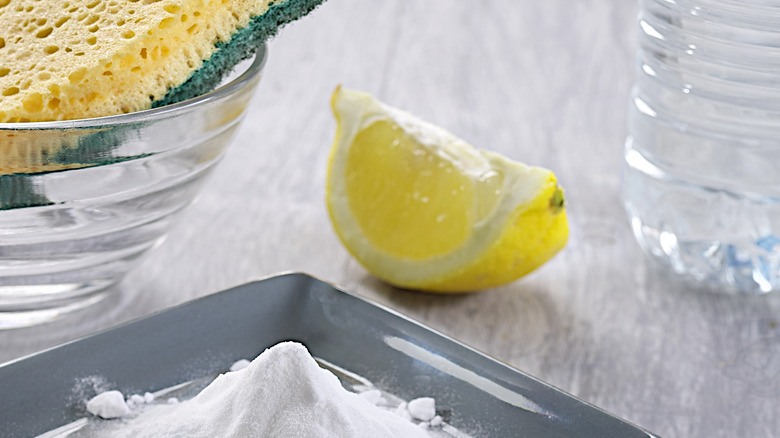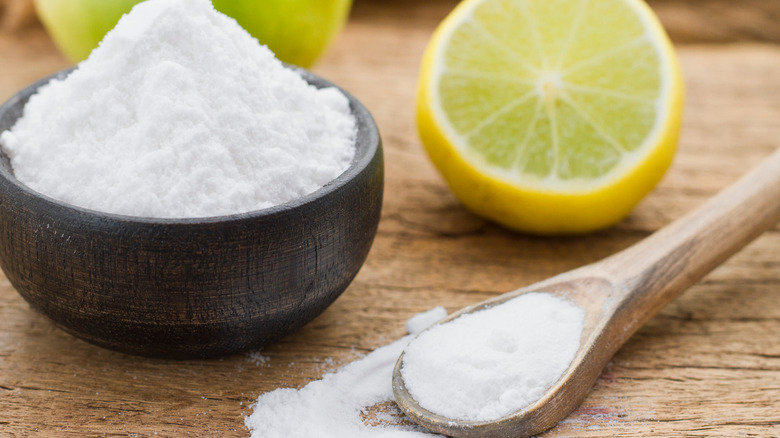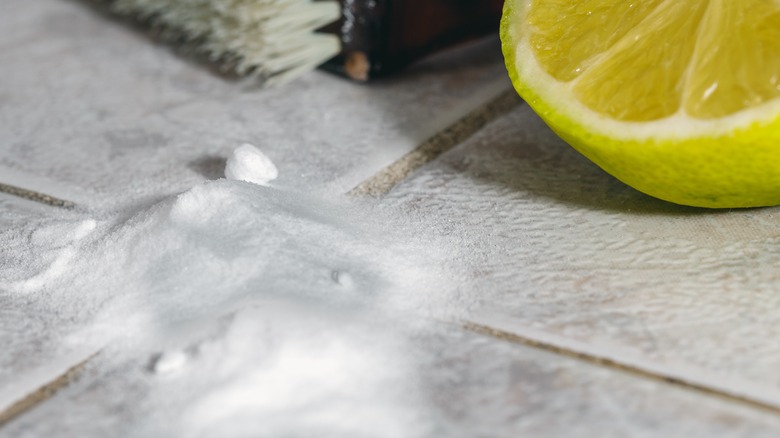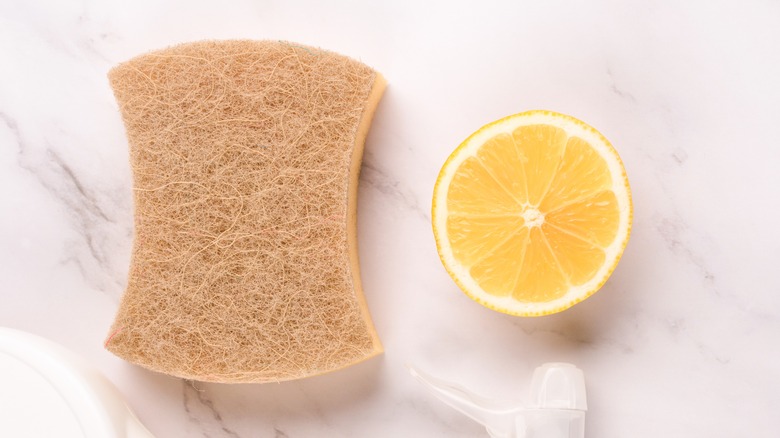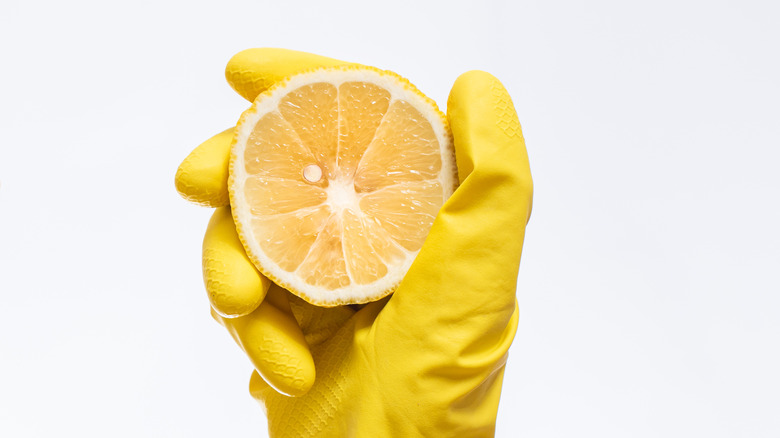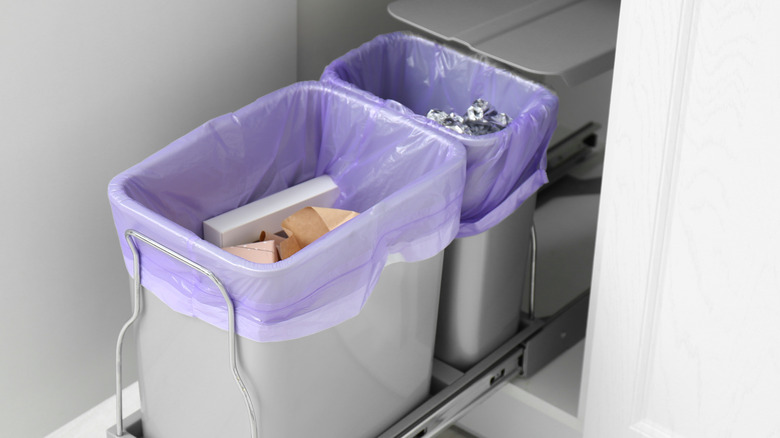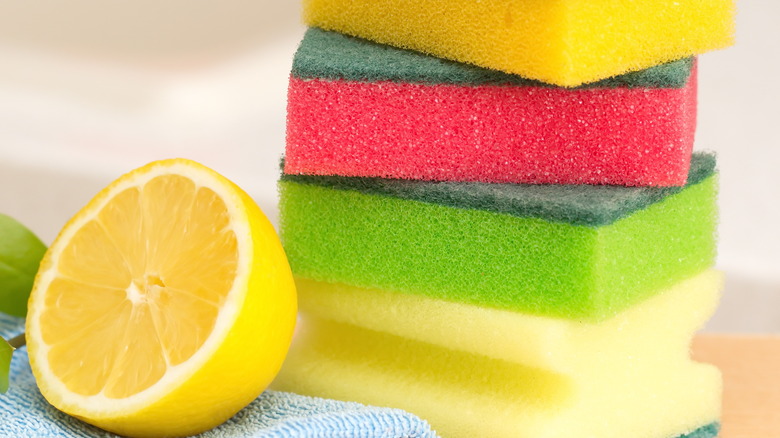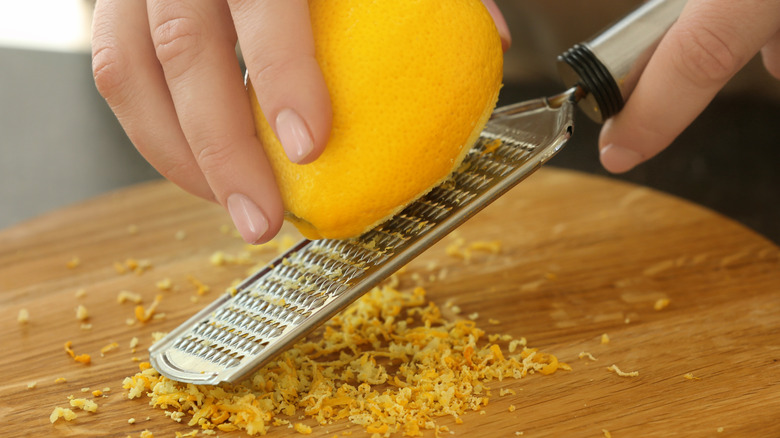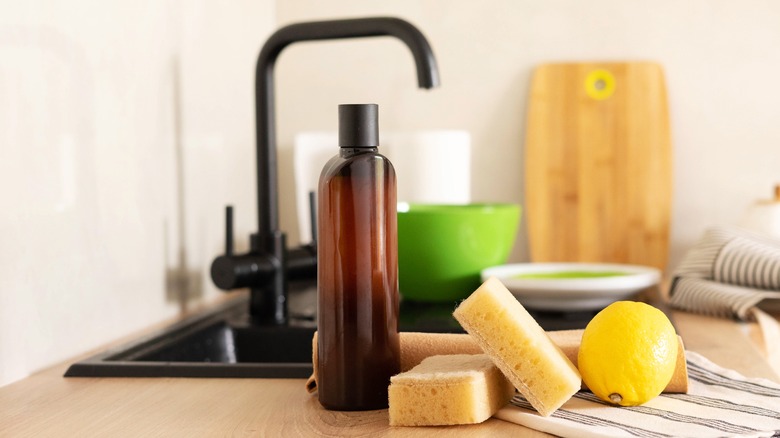22 Ways To Naturally Clean Your Kitchen With Fresh Lemon
Ever wonder why there are so many lemon-scented kitchen products in the cleaning aisle at your local market or grocery store? Turns out it's not just because everyone loves the scent of lemons. The real reason you can buy everything from lemon dish soap to lemon wood polish is because lemons have long been considered one of nature's most trusted and effective cleaning products. These tart, golden bursts of sunshine are actually packed with everything you need to help keep your kitchen spotless. They're a natural disinfectant with built-in antimicrobial properties. And they smell good! In fact, people have been using the natural power of lemon to clean their homes for hundreds of years.
Best of all, you don't need to buy a bunch of special citrus-powered cleaning products to enjoy a lemon fresh kitchen. You can make your own! It's affordable, good for the environment, and your kitchen will never be cleaner! So let's dive right in with some amazing ways to naturally clean your kitchen with lemons.
Wipe down cutting boards
Cutting boards need regular care to avoid becoming stained, smelly, or possibly coated in bacteria. Luckily lemon is the ideal weapon to clean these kitchen essentials. Fresh lemon juice can act as a natural antimicrobial, killing and inhibiting germ growth. And the peel of the lemon — and its textured surface — is a gentle scrubber that will remove leftover food and debris. To clean either wood or plastic cutting boards with lemon, squeeze half the lemon's juice directly on the board's surface. Use the remaining peel as a scrubber, wiping your board in circular motions until clean. Rinse and dry!
De-funk your microwave
To combat food splatters and stains in your microwave, all you need is a bowl of water and a lemon. Cut the lemon in half and squeeze the fresh juice into a microwave safe bowl. Then, partially fill the bowl with water, put it in the microwave, and nuke it for three to four minutes on high. As the water heats up, the steam it generates will penetrate and soften leftover food grime, making it easier to wipe away. Meanwhile, the acidity of the lemon will help to loosen and dissolve food stains and residue. Keep your steam-filled microwave closed for several minutes then open and wipe the interior immediately with a paper towel. Voila! No more funk!
Polish stainless steel
Stainless steel tends to tarnish over time. But lemon can help to remove that dirty corrosion. Lemon's silver-purifying properties come from the fruit's high level of citric acid, which acts as a gentle acidic cleanser, dissolving built-up tarnish and grime. To clean your stainless steel with lemon, simply squeeze some juice into a bowl. Dab a clean cloth in the liquid — it should be well-soaked but not dripping. Using light pressure, gently rub the cloth along the surface of the stainless steel, following the grain of the metal. Continue polishing until you reach your desired level of cleanliness and shine.
Tidy up your kitchen sink
Just as you can use lemon to clean stainless steel silverware or cookware, you can also use the potent fruit to help eliminate rust and stubborn water stains from around the drain and faucet in your kitchen sink. You can use the same lemon-soaked rag technique we described previously or put the stopper in your sink and squeeze the lemon juice directly over the drain. Then scrub the areas you want to clean with the leftover lemon peel or a small scrub brush (an old toothbrush works too) for especially tough to remove water spots or mineral deposits. As an added bonus, lemon juice also leaves behind a fresh citrus scent that can help neutralize unpleasant sink odors.
Refresh a stained coffee pot
Since lemon juice is so good at breaking down stains, mineral deposits, and water spots, it's also an ideal food-safe way to clean any coffee pot. The process couldn't be easier. Cut a fresh lemon into slices and add it to your empty coffee maker carafe. Fill your coffee maker with water, skip the grounds, and hit "brew." As the hot water fills the carafe, it will soak the lemon, pulling out the fruit's natural cleansing acidic oils. Let the lemon-infused hot water steep on the coffee pot for around a half hour — empty the carafe and use a soft sponge to scrub the glass interior. Rinse well then get back to coffee brewing!
Maintain your garbage disposal
Lemon's natural acidity and anti-bacterial properties are ideal for regularly cleaning and maintaining almost all types of garbage disposals. And this is one type of kitchen clean-up that takes just seconds! Any time you feel like your garbage disposal needs a little refreshing, simply take a lemon and cut it into pieces — being careful to remove any seeds. Then chuck those pieces into the garbage disposal and run it as you would with any other food waste you were breaking down. The lemon peel will scrub the disposal's blades while the fruit's acids and oils will break down built-up gunk, grime, and odor. Repeat as often as needed. You don't even need fresh lemons — you can use cooking leftovers.
Make your fridge less smelly
Deodorizing a smelly refrigerator is another great way to use leftover peels after adding lemon zest or lemon juice to any of your favorite recipes. And this is another process where the technique couldn't be easier. All you need is to set your lemon in the fridge (fresh halves work great as well) and close the door to trap the scent. Let the lemon do the rest — the fruit's pulp and peel will both help to mask and absorb stubborn odor-causing molecules which might be circulating in your fridge. Leave the fruit inside the fridge overnight and then remove the next morning. Your refrigerator will smell brand new and lemon fresh!
Clean inside your oven
Among its many special powers, lemon is a great natural degreaser, making it ideal for cleaning a dirty oven. To get started, squeeze the juice of several lemons into a spray bottle then dilute with an equal amount of water. Spray the lemon juice mixture generously around the interior of your oven, paying special attention to areas with stubborn grease or stains. Sprinkle a layer of baking soda over the lemon juice. It will act as a gentle abrasive and help to further break down that grime. Close the oven door and let everything sit for at least 30 minutes. Then scrub the oven's interior with a rag or sponge, gently lifting off the dirty residue the lemon helped to free.
Spot clean the surface of your stove
Once you have cleaned the inside of your oven, you can use the same lemon juice and baking soda combo to tidy up the surface of your appliance as well. Just dip a rag or sponge into a mixture of equal parts lemon juice and water. Sprinkle some baking soda over whatever section of the stove you'd like to clean and start scrubbing. For especially stubborn spots or stains, let the lemon and baking juice mixture sit on the grime for 10 to 15 minutes to further break down the grease and food debris and then scrub until clean. Repeat the process as needed and rinse everything down with water once you finish to remove any leftover residue.
Naturally refresh your dishwasher
Is your dishwasher filled with built-up soap scum, water spots, or weird smells? Fresh lemon can help to knock out all three problems. To get your dishwasher lemon fresh, first slice a lemon in half. Then rub the lemon all around the interior of your dishwasher, paying extra attention to areas with stains, mineral deposits, or food residue. You can squeeze the lemon slightly as you rub to release additional juice. When you're done, drop the used lemon in the cutlery tray. Next, sprinkle a generous amount of baking soda on the bottom of your dishwasher — it will help to absorb odors and acts as a gentle abrasive for cleaning. Finally, run the dishwasher on its hottest, longest setting. That heat, combined with the lemon juice and baking soda, will help to break down grease, eliminate odors, and sanitize the interior of your machine.
Make your own room freshener
Don't buy expensive fake smelling lemon-scented room fresheners. It's easier and cheaper to just make your own. All you need is a couple fresh lemons, distilled water, a spray bottle, and a clean jar. To craft your DIY room freshener, first cut the lemons in half and squeeze them to remove their juice. Save the juice for any of the other uses we've outlined here. Then put the peels into the jar and fill it with distilled water until the peels are just covered. Put the lid on the jar and let everything steep for 24 hours. Transfer your finished mixture into a spray bottle and use as needed to fill your kitchen with lemon-scented goodness!
Clean up your blender
Blenders are one of the most annoying appliances to clean and maintain. But fresh lemons make the process significantly easier, helping to degrease, deodorize, and break down stains. For a lemon-fresh blender, just grab a whole lemon and cut it into quarters. Squeeze the juice from the lemon directly into the blender, being careful to remove any seeds. Fill the blender halfway with warm water, put on the lid, and blend the lemon juice and water mixture on high for at least 1 minute. Then let everything sit for five to 10 minutes. The combination of the heat from the water, acid in the lemon juice, and the motion of the blending will break down grease and grime inside the appliance. When the time is up, empty the blender, scrub the jar to remove the freed debris, and rinse thoroughly. Then you're back to blending!
Get your windows sparkling
Lemon juice is the ideal weapon to blast fingerprints, pet nose smudges, and day-to-day dust buildup from all your kitchen glass surfaces.You just need some fresh lemons, white vinegar, a bit of rubbing alcohol and water. To make a quick and super effective DIY glass cleaner, combine the juice of one lemon, 2 cups water, 1/4 cup white vinegar and 2 tablespoons rubbing alcohol in a clean spray bottle. Shake all the ingredients and you are good to start cleaning. Spray the lemon glass cleaner onto any glass surface you want to clean and wipe it with a dry lint-free cloth using a circular motion to avoid any smudges or streaks.
Remove rust
The more you use your kitchen, the more likely you are to have rust build up somewhere. It can attack the sink, faucets, cookware — even your appliances. Fortunately, fresh lemon can help knock that rust out and leave all your kitchen gear looking brand new.
To remove rust with lemon, dampen whatever area you want to clean and then coat it with a generous amount of salt. Squeeze on some fresh lemon juice and start gently scrubbing. The citric acid in the lemon will help break down the rust while the salt serves as an abrasive to help scrub the rust away. After you've scrubbed a bit, let the lemon and salt sit for around 30 minutes to further break down the rust. Rinse the area with clean water and wipe it dry with a lean towel. Be careful to remove all traces of lemon juice and salt to prevent further corrosion.
Deodorize plastic food containers
Whether it's takeout containers you save to use again or traditional Tupperware-style food containers, anything plastic used to store food can get stained and start to smell funny over time. But this is another case where the combo of fresh lemon juice and baking soda is all you need to bring those old containers back to life.
To help that lemon work its magic, first rinse the container with water and then sprinkle in a generous amount of baking soda. Next, squeeze the juice of one lemon into the container. You should notice a mild, fizzy reaction when the juice and baking soda meet — this is what helps to break down stains and odor. Now, using a sponge or soft brush, scrub the inside of the container well. Let it sit for 10 to 15 minutes, rinse well, and allow to air dry. No more odor!
Whiten tile and grout
Just as baking soda and lemon can revitalize old plastic, this combination of potent cleaners can also work wonders on your kitchen floor, helping to clean tiles and whiten grout. The process is the same as with the plastic. First dampen the section of floor you want to clean, then sprinkle on a good amount of baking soda. Next, add the juice of one or two lemons. Squeeze it out directly on the floor over the baking soda, wetting it as best you can. Finally, grab a sponge or soft brush and start gently scrubbing, cleaning the tiles and focusing special effort on the grout — especially if it's discolored or needs some whitening. When the floor is clean, wipe with a rag or towel to remove the dirty lemon baking soda grime and then rinse well with water.
Polish wood cupboards
Whether they are designed for wood floors or kitchen cupboards, most wood cleaners and wood polishes contain lemon. Juice from the fruit contains the perfect wood-friendly mixture of must-haves for cleaning: mild abrasiveness, non-toxicity, and pleasant scent, making it ideal for use on almost all types of wood in your kitchen. For cupboards in particular, the process of cleaning with lemon couldn't be easier. Just combine equal parts water and lemon juice and then dip a clean cloth or sponge into the mixture. You're ready to clean! Being careful to not use too much liquid, gently wipe down your cabinets with the lemon solution, paying special attention to areas that have accumulated grease or stains. When done, rinse the cabinets with a clean rag or sponge and let air dry. If your cupboards seem dull after cleaning, take a couple extra minutes to wipe them down with a wood polish or conditioner — lemon-scented of course!
Spot clean stainless steel appliances
Spot cleaning stains or fingerprints on a stainless steel appliance with lemon couldn't be more quick and efficient. You don't even have to dilute the lemon's juice! Just take a slice or wedge of the golden fruit — make sure it's especially fresh and juicy — and rub it directly on the spot you want to clean. Apply gentle pressure and make small circular motions. Let the lemon juice sit on the spot for several minutes to break down the stain and grime. Then wipe the area with a soft damp cloth. Use a second dry cloth to again wipe the stainless steel surface, removing any moisture and restoring the appliance's original metallic shine.
Banish trash can odor
We all know trash cans are stinky, but fresh lemon can remove that stench in a variety of ways. For starters, consider finely grating the peels from several lemons to create a large amount of lemon zest. You can use the potent, lemon-fresh scented zest in several ways. Sprinkle some directly into the bottom of your trash can before you add the bag. If you store your trash in an enclosed space, you can also place a small amount of lemon zest in a bowl next to your trash as a natural air freshener for the area. Finally, you can combine an equal amount of lemon juice and water (or even lemon-peel infused water) in a spray bottle and apply a few squirts directly into your trash anytime it starts to smell. The lemon will help to mask the odor until its trash day and you're able to toss that garbage for good!
Sterilize your sponges
Lemon juice is an ideal way to help keep kitchen sponges clean and sterile between uses. To clean your sponges with lemon, start by rinsing the sponge thoroughly to remove any loose food particles or debris. Next, squeeze the juice of a couple lemons into a bowl that is deep enough to submerge your sponge into. Add your sponge and then finish filling the bowl with just enough water to cover your sponge. Leave it submerged and saturated in the lemon juice mixture for about five to 10 minutes. As it sits, the natural acidity of the lemon helps kill bacteria and neutralize odors. When the time is up, rinse the sponge thoroughly, squeeze, and dry. Repeat as needed whenever your sponge needs a quick reset.
Make a homemade scouring powder
Grated lemon zest is excellent in salad dressing and baked goods like cakes and cookies. But these tiny bits of lemon peel can also be useful as a homemade scouring powder to help remove stubborn spots or stains around your kitchen. Just grate a handful of zest and then spread it out on a tray and let dry overnight. The next day, combine your dried lemon zest with baking powder and you've got an instant homemade scouring powder that you can use to clean anywhere in the kitchen. Sprinkle a small amount wherever you need to clean and scrub gently using a damp sponge or brush. Rinse thoroughly with water when done and say goodbye to stains!
Boost the power of your dish soap
Once you've got your whole kitchen looking and smelling lemon clean, keep it that way by using fresh lemon juice to give a cleansing boost to your favorite dish soap. No matter what brand you use, a bit of added lemon juice will amp up that soap's ability to cut through grease and clean dishes even more effectively. It will also give your dish soap a great lemon fresh scent. To prepare your lemon dish soap mixture, just squeeze the juice from a fresh lemon and add it directly to your dish soap container. Stir or shake well and then use as needed or pour into your sink's built-in soap dispenser. Then use the soap as you would normally — keep in mind delicate items could be harmed by the acid in the lemon juice, so just be aware. Happy cleaning!

